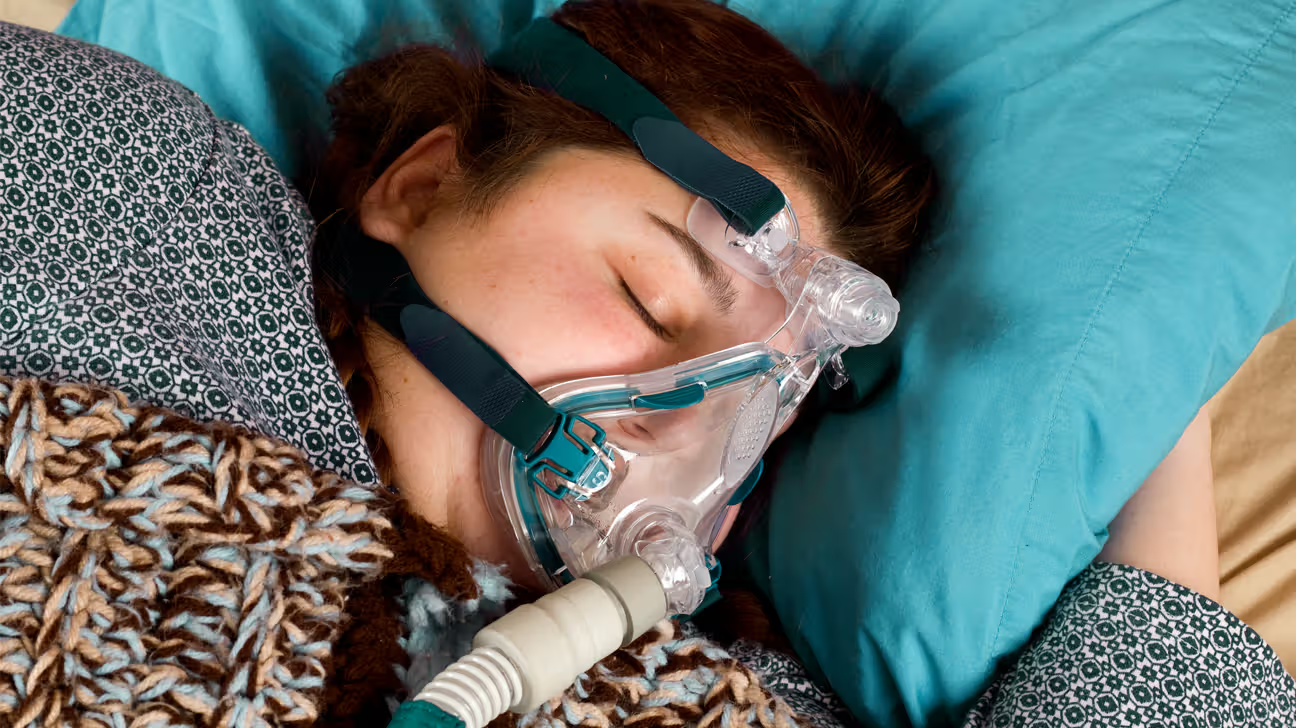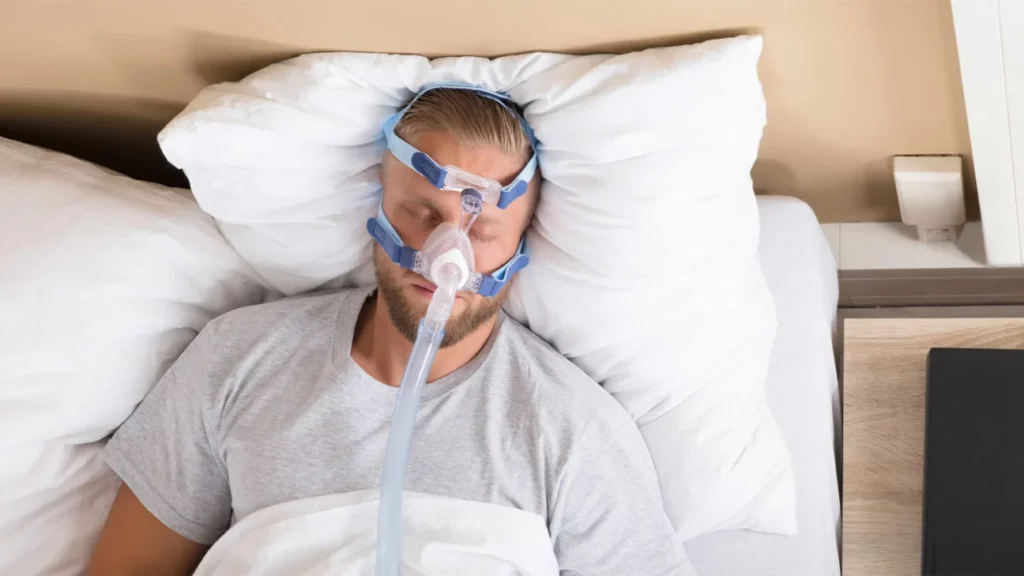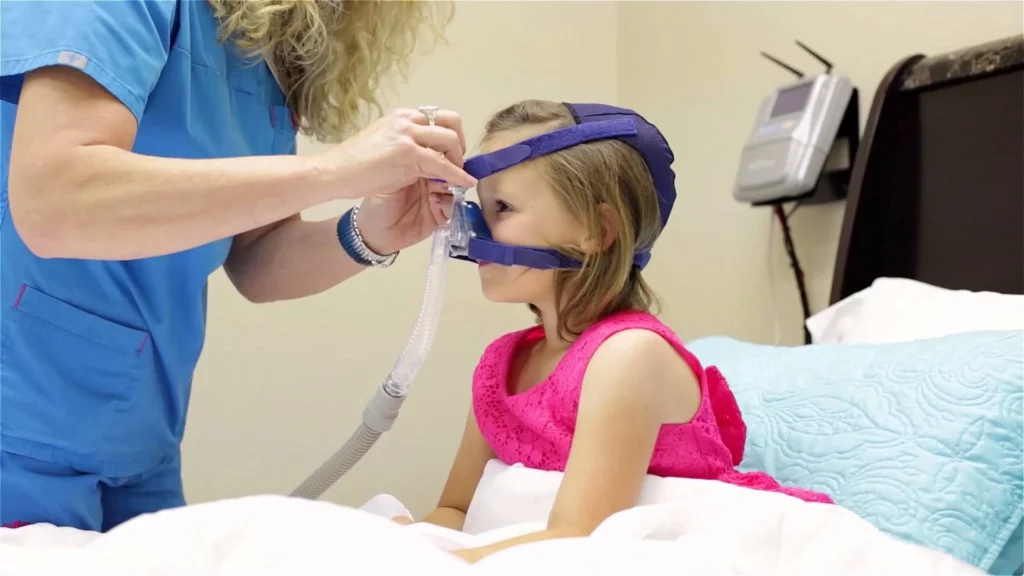
Sleep apnea is a common sleep disorder that affects many Australians. It can lead to serious health complications if not detected and treated early on. One of the most important steps in diagnosing sleep apnea is undergoing a sleep apnea test. However, many people are hesitant to get tested due to concerns about the cost. In this article, we will break down the cost of a sleep apnea test in Australia and discuss the various factors that can impact its price.
Understanding Sleep Apnea
Sleep apnea is a sleep disorder characterized by frequent interruptions in breathing during sleep. These interruptions, known as apneas, can last for several seconds or even minutes. They are caused by a partial or complete blockage of the airway, which prevents oxygen from reaching the lungs. This lack of oxygen triggers the brain to wake up momentarily, disrupting the sleep cycle. People with sleep apnea often experience excessive daytime sleepiness, loud snoring, and restless sleep.
In conclusion, the sleep apnea test cost in Australia can vary depending on various factors, including the type of test and the level of health insurance coverage. While the cost may seem daunting, early detection and diagnosis of sleep apnea are crucial for maintaining good health and reducing the risk of long-term complications. By understanding the different types of sleep apnea tests and exploring available coverage options, individuals can make informed decisions about their sleep health and take control of their overall well-being.
What is Sleep Apnea?
Sleep apnea is a condition where the upper airway becomes blocked during sleep, leading to pauses in breathing. These pauses, called apneas, can occur multiple times throughout the night and can last for seconds or even minutes. Sleep apnea can be categorized into three types: obstructive sleep apnea (OSA), central sleep apnea (CSA), and complex sleep apnea syndrome (CSAS), also known as treatment-emergent central sleep apnea.

Symptoms and Risks of Sleep Apnea
Common symptoms of sleep apnea include loud snoring, daytime sleepiness, morning headaches, and difficulty concentrating. Sleep apnea is also associated with an increased risk of several health conditions, including high blood pressure, heart disease, stroke, diabetes, and depression. It is essential to get tested for sleep apnea if you suspect you may have this condition, as timely diagnosis and treatment can significantly reduce the risk of these complications.
While loud snoring is a common symptom of sleep apnea, it is important to note that not everyone who snores has sleep apnea. Snoring can be caused by various factors, such as nasal congestion, alcohol consumption, or sleeping position. However, if your snoring is accompanied by other symptoms like gasping for air during sleep or excessive daytime sleepiness, it may be an indication of sleep apnea and should be evaluated by a healthcare professional.
Furthermore, sleep apnea not only affects the quality of sleep but can also have a significant impact on daily life. Excessive daytime sleepiness can lead to difficulties in concentration, memory problems, and decreased productivity. It can also increase the risk of accidents, both at work and while driving. Therefore, it is crucial to seek medical attention if you suspect you may have sleep apnea, as proper treatment can greatly improve your overall quality of life.
The Importance of Sleep Apnea Testing
Early detection and diagnosis of sleep apnea are crucial for maintaining good health and well-being. Sleep apnea testing can help identify the severity of the condition, determine the appropriate treatment options, and monitor the effectiveness of the chosen treatment. By undergoing a sleep apnea test, individuals can take control of their sleep health and minimize the risks associated with untreated sleep apnea.
Read about sleep test Perth at: Comprehensive Sleep Testing in Perth
Early Detection and Diagnosis
Getting tested for sleep apnea as soon as you notice symptoms is vital for effective management of the condition. Sleep apnea tests can accurately diagnose the presence and severity of the disorder, enabling healthcare professionals to develop a personalized treatment plan. Early detection also allows for the implementation of lifestyle changes and the use of interventions that can alleviate symptoms and prevent further complications. Read more about severity on https://www.ou.edu/deptcomm/dodjcc/groups/01A1/severity.html
Long-term Health Implications
Undiagnosed and untreated sleep apnea can lead to a variety of long-term health problems. These include cardiovascular diseases, such as hypertension and heart failure, as well as an increased risk of stroke and diabetes. Moreover, sleep apnea can significantly impact one’s quality of life, causing excessive daytime sleepiness, impairment in cognitive function, and a higher likelihood of accidents and injuries. By undergoing a sleep apnea test, individuals can mitigate these risks and improve their overall well-being.
Furthermore, sleep apnea has been linked to various mental health conditions. Studies have shown that individuals with untreated sleep apnea are more likely to experience symptoms of depression, anxiety, and mood disorders. The disrupted sleep patterns and oxygen deprivation associated with sleep apnea can have a profound impact on mental health, leading to a decrease in overall happiness and an increased risk of developing psychiatric disorders.
In addition to the physical and mental health implications, sleep apnea can also have a significant impact on personal relationships. The loud snoring, gasping for breath, and sudden awakenings that often accompany sleep apnea can disrupt the sleep of bed partners, leading to resentment and strain in the relationship. Sleep deprivation caused by sleep apnea can also result in irritability and mood swings, further affecting interpersonal dynamics.
Different Types of Sleep Apnea Tests
There are two main types of sleep apnea tests: home sleep tests and in-lab sleep tests. Both options have their pros and cons, and the choice depends on the individual’s specific circumstances and the recommendations of their healthcare providers.
Home Sleep Tests
Home sleep tests, also known as portable sleep studies, are convenient and cost-effective alternatives to in-lab sleep tests. These tests are conducted in the comfort of one’s own home using portable monitoring devices. Home sleep tests typically measure breathing patterns, blood oxygen levels, heart rate, and other relevant parameters to assess sleep apnea severity. However, it’s important to note that home sleep tests may not be suitable for patients with other underlying medical conditions or complex sleep apnea.
One advantage of home sleep tests is that they reflect a person’s typical sleep environment, which can be beneficial in capturing accurate data. However, the lack of direct supervision during the test may lead to issues such as improper sensor placement or inadequate data collection. It is essential for individuals undergoing a home sleep test to follow the instructions carefully to ensure reliable results.
In-lab Sleep Tests
In-lab sleep tests, also referred to as polysomnograms, are conducted in specialized sleep centers or hospitals. During an in-lab sleep test, individuals spend a night at the facility while being monitored by sleep technicians. Sensors are attached to various parts of the body to record brain activity, eye movements, muscle activity, heart rhythm, and respiratory patterns. In-lab sleep tests allow for more comprehensive monitoring and are particularly useful when evaluating complex cases or when a high level of accuracy is required for diagnosis. Click here to find more about heart rhythm.
Moreover, in-lab sleep tests offer the advantage of immediate assistance and intervention in case of any issues during the test. The presence of trained professionals ensures that the monitoring equipment is correctly set up and that any potential problems can be addressed promptly. Additionally, the controlled environment of a sleep center reduces external factors that may impact the quality of the test results, leading to a more accurate assessment of the individual’s sleep apnea condition.
Cost Factors of Sleep Apnea Tests
Several factors can influence the cost of a sleep apnea test in Australia. The type of test and its associated fees, as well as the level of health insurance coverage, play a significant role in determining the overall cost.
When considering the cost of a sleep apnea test, it is essential to understand the different types of tests available and how they can impact the overall expenses. In addition to the test type, factors such as the location of the testing facility and any additional services provided can also contribute to the final cost.
Test Type and Its Impact on Cost
The cost of a sleep apnea test can vary depending on whether it is a home sleep test or an in-lab sleep test. Home sleep tests are generally less expensive, with prices ranging from $200 to $500. In-lab sleep tests, on the other hand, can cost between $1,000 and $2,000 or more. The price difference is primarily due to the additional resources and personnel required to conduct in-lab tests.
Furthermore, the type of equipment used during the sleep apnea test can also influence the overall cost. Advanced monitoring devices and technology may result in higher expenses compared to standard testing equipment.

The Role of Health Insurance
Health insurance coverage can significantly reduce the out-of-pocket expenses associated with sleep apnea tests. In Australia, Medicare provides rebates for both home sleep tests and in-lab sleep tests. However, the level of coverage may vary depending on individual circumstances and the specific health insurance plan. It is advisable to check with your health insurer to understand the extent of coverage and any out-of-pocket expenses you may incur.
In addition to Medicare rebates, some private health insurance plans may offer further benefits or coverage for sleep apnea tests. Understanding the terms and conditions of your health insurance policy can help you make informed decisions regarding your healthcare expenses.
Navigating the Australian Healthcare System
Understanding the coverage and funding available for sleep apnea tests in Australia is crucial for making informed decisions about your healthcare. In particular, it is essential to be aware of the options provided by Medicare and private health insurance.
Medicare Coverage for Sleep Apnea Tests
Medicare covers a portion of the costs associated with sleep apnea tests in Australia. For home sleep tests, Medicare provides a rebate of approximately $100-$200, depending on the test’s complexity. This rebate helps to alleviate some of the financial burden associated with diagnosing sleep apnea, making it more accessible to a wider range of individuals.
When it comes to in-lab sleep tests, Medicare also offers rebates. The exact amount of the rebate depends on the specific test and the healthcare provider. This means that individuals can choose the most suitable healthcare provider for their needs without worrying about the full cost of the test.
To avail of these rebates, individuals must have a valid Medicare card and an eligible referral from a healthcare practitioner. This ensures that the tests are conducted under the guidance of a medical professional, leading to accurate results and appropriate treatment plans.
Private Health Insurance Options
Private health insurance can offer additional coverage and benefits for sleep apnea tests. Depending on your policy, private health insurance may cover a portion of the cost of both home sleep tests and in-lab sleep tests. This can provide individuals with more flexibility in choosing the type of test that best suits their needs.
However, it’s important to review your policy carefully to determine the extent of coverage, any waiting periods that may apply, and any out-of-pocket expenses you may still need to pay. Understanding the terms and conditions of your private health insurance policy ensures that you are fully aware of the financial implications before undergoing a sleep apnea test.
Moreover, some private health insurance policies may offer additional benefits such as access to preferred healthcare providers or the option to upgrade to more advanced sleep apnea diagnostic tests. These added benefits can further enhance the overall quality of care individuals receive, leading to more accurate diagnoses and tailored treatment plans.
